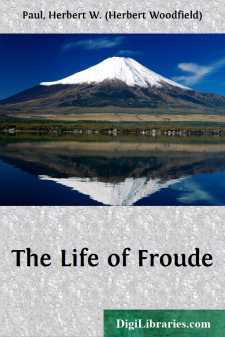Categories
- Antiques & Collectibles 13
- Architecture 36
- Art 48
- Bibles 22
- Biography & Autobiography 813
- Body, Mind & Spirit 142
- Business & Economics 28
- Children's Books 16
- Children's Fiction 13
- Computers 4
- Cooking 94
- Crafts & Hobbies 4
- Drama 346
- Education 46
- Family & Relationships 57
- Fiction 11829
- Games 19
- Gardening 17
- Health & Fitness 34
- History 1377
- House & Home 1
- Humor 147
- Juvenile Fiction 1873
- Juvenile Nonfiction 202
- Language Arts & Disciplines 88
- Law 16
- Literary Collections 686
- Literary Criticism 179
- Mathematics 13
- Medical 41
- Music 40
- Nature 179
- Non-Classifiable 1768
- Performing Arts 7
- Periodicals 1453
- Philosophy 64
- Photography 2
- Poetry 896
- Political Science 203
- Psychology 42
- Reference 154
- Religion 513
- Science 126
- Self-Help 84
- Social Science 81
- Sports & Recreation 34
- Study Aids 3
- Technology & Engineering 59
- Transportation 23
- Travel 463
- True Crime 29
Gallipoli Diary, Volume 2
by: Ian Hamilton
Categories:
Description:
Excerpt
K.'S ADVICE AND THE P.M.'S ENVOY
11th July, 1915. Worked in my office from early morning till 12.45. The whole scheme for to-morrow's attack is cut and dried, according to our cloth: time tables fixed and every round counted.
Freddy Stopford and his Staff turned up from Mudros. Stopford in very good form. The first thing he did was to deliver himself of a personal message from Lord K. He (Stopford) wrote it down, in the ante-room, the moment he left the presence and I may take it as being as good as verbatim. Here it is:—
"Lord Kitchener told me to tell you he had no wish to interfere with the man on the spot, but from closely watching our actions here, as well as those of General French in Flanders, he is certain that the only way to make a real success of an attack is by surprise. Also, that when the surprise ceases to be operative, in so far that the advance is checked and the enemy begin to collect from all sides to oppose the attackers, then, perseverance becomes merely a useless waste of life. In every attack there seems to be a moment when success is in the assailant's grasp. Both the French and ourselves at Arras and Neuve Chapelle lost the opportunity."
Well said! K. has made Stopford bring me in his pocket the very text for what I wanted to say to him. Only my grumbling thoughts find expression by my pen but I have plenty of others and my heart has its warm corner for K. whenever he cares to come in.
As I told Stopford, K. has not only anticipated my advice but has dived right down into this muddle of twentieth century war and finds lying at the bottom of it only the old original idea of war in the year 1. At our first landing the way was open to us for just so long as the surprise to the Turks lasted. That period here, at the Dardanelles, might be taken as being perhaps twice as long as it would be on the Western front which gave us a great pull. The reason was that land communications were bad and our troops on the sea could move thrice as fast as the Turks on their one or two bad roads. Yet, even so, there was no margin for dawdling. Hunter-Weston and d'Amade had tried their best to use their brief surprise breathing space in seizing the Key to the opening of the Narrows—Achi Baba, and had failed through lack of small craft, lack of water, lack of means of bringing up supplies, lack of our 10 per cent. reserves to fill casualties. At that crucial moment when we had beaten the local enemy troops and the enemy reinforcements had not yet come up, we could not get the men or the stuff quick enough to shore. Still, we had gained three or four miles and there were spots on the Peninsula where, to-day, three or four miles would be enough. Also, supposing he had to run a landing, his (Stopford's) action would take place under much easier conditions than Hunter-Weston's on April 25th.
First and foremost, in our "beetles" or barges, conveying 500 men under their own engines, we had an instrument which reduced the physical effort three quarters. This meant half the battle....













